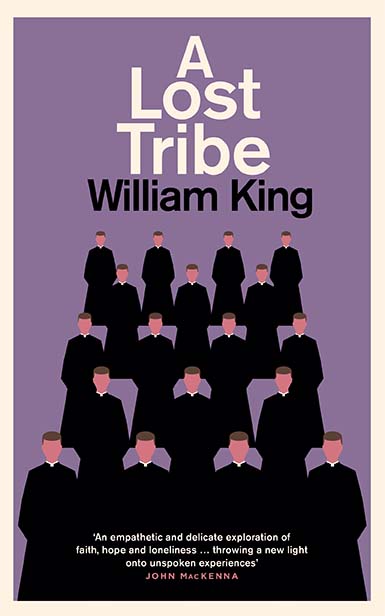A Lost Tribe Review Extract
What Happened to God’s Policemen
All of that by way of introduction to William King’s new novel A Lost Tribe, which charts the role of the priest in Ireland, from his exalted position to one of endangered species. King, who’s a Dublin parish priest and a prolific novelist – this is his fifth novel in two decades -brings the memories of almost fifty years of priesthood and an impressive writing style to his best novel to date.
priesthood and an impressive writing style to his best novel to date.
The main character is Fr Tom Galvin who, coming towards the end of his life and on a retreat in his old seminary, remembers the old church he knew, the hopes he had entertained, the realities he had lived and the devastation the Catholic Church in Ireland was now experiencing. As he moves around the seminary, memories of the past keep rushing in, like the times the seminarians were given permission to watch the opening of the Second Vatican Council on television which presented a mix of reactions among them, for some hope based on the vision of the Council and for others the seduction of power as they watched the procession of bishops ‘ vested in flowing robes’. King’s gallery of priests, ranging from the nakedly ambitious Damien Irwin, dreaming about trips to Rome to buy vestments at Gamarelli’s, to Mac who’s expelled from the seminary as a result of a tryst in the bushes, to Galvin himself, fifty years ordained, uncomfortable with but still committed to the priesthood and the Church, and ‘striving to recover the dream of his youth but, like an ageing marathon runner, he no longer has the legs.’ Other well wrought characters include the archbishop – shades of John Charles McQuaid in this portrait – or the weird Dean of Discipline who told the students that ‘the most important rule in the seminary is obedience’.
Boundaries of time collapse as Galvin remembers the old seminary, holding up the cappa magna, the archbishop’s long trail of washed silk, parading up and down the ambulatory after breakfast, the thud of wet leather as the football resounded against the walls of the handball alley, the purl of whispers during the solemn silence, the deacons self-consciously reading their breviaries, the girl in the confessional wanting to know if it was an occasion of sin to let her boyfriend sleep in her flat even if he was in another room. Galvin struggles to keep going as the Church seems to crumble around him. The seminary is practically empty, some priests are being harried for abusing children, churches (he fears) are ‘becoming old curiosity shops’. Priests once ‘God’s policemen’ now occupy a marginal place on the sidelines as Ireland, ‘waiting a long time for this chance’, exacts its retribution.
This is a wonderful book, rich in wisdom, beautifully written, highly entertaining and often laugh-out-loud funny. Priests, particularly those who remember the past and who struggle with the present, will find it a highly entertaining read. It also has some wise and compelling things to say about why we are where we are and how we are. Real writers (like artists) see it first.
William, King, A Lost Tribe, Lilliput Press, pp. 244, € 15 .
Extract of review from
The Western People
15 September 2017
